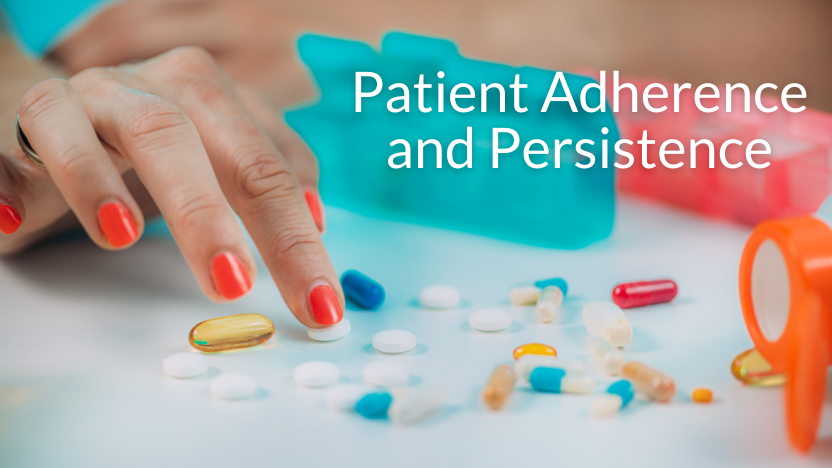Helping Patients Take Control of Their Eye Health
Posted by EyePromise on Jul 20th 2023
The definition of adherence is “the degree or extent of conformity to the provider recommendations about day-to-day [care] with respect to timing, dosage, and frequency.” Unfortunately, adherence is consistently a struggle for almost all areas of healthcare. Perhaps it’s because patients are busy, impatient, or it could be a lack of persistence, which is defined as “the act of continuing [care] for the prescribed duration.”
In an article for Optometry Times, EyePromise® Scientific Advisory Board members Mile Brujic, OD, FAAO, and Jeffry Gerson, OD, FAAO, explain why patients need both to experience the best outcomes.
Why Balance Is Key
Getting great outcomes from care protocols requires a balance of adherence and persistence on the patient’s part. If a patient is persistent with the instructions but doesn’t fully adhere to them, the may end up using the prescribed care incorrectly. This can be common in contact lens patients, surfacing as wear and care issues.
However, a patient may adhere to a care protocol accurately but may cease persistence with the routine if they have adverse events or aren’t feeling/seeing a benefit. This can also occur if a patient doesn’t fully understand their existing or potential eye health issue. Consider patients with risk factors or early signs of age-related eye health issues. They may not have symptoms, so they don’t fully understand why they need to take this precautionary prescription seriously. By the time symptoms arise, permanent vision damage has been done.
What Can You Do to Help?
As an eye care
practitioner (ECP), you can help by ensuring patients fully understand your
prescribed care protocol prior to leaving your office. In a
recent prospective controlled survey, they compared two offices and their patients’ concordance
rates with adherence to the AREDS 2 study recommendations. One practice
included both written and verbal instructions for patients and required each
staff member to reiterate the verbal directions during each office visit. This
led to an 81.6% concordance rate. The second practice did not have a policy in
place, resulting in a concordance rate that was nearly half of the first
practice’s (44.1%).
Another suggestion made in the article is creating a standardized follow-up appointment to check in with patients and their care protocol progress. For example, checking in with patients identified with age-related eye health issues (early, intermediate, or advanced) more frequently can help reinforce adherence and persistence, as well as keep the issues from progressing. Additionally, it can help identify patients who may not fully understand their care protocols or who need a different care protocol due to adverse events.
How Can EyePromise Help?
An educated patient is a compliant and persistent patient. EyePromise’s comprehensive nutritional partnership empowers ECPs to prescribe the most clinically backed nutraceutical line available through office staff education and training, in-practice education tools like posters, brochures, and videos, and follow-up patient education via emails and online articles.
Additionally, EyePromise’s expert Customer Support team is live, working Monday-Friday from 8am to 5pm CST as an extension of your practice. They can help answer any patient or staff questions, and they’ll check in with patients newly prescribed EyePromise to ensure they’re on top of their adherence and persistence.
But this is just the tip of the iceberg. Learn more about the most partner-focused nutritional program.

Following care protocols requires adherence and persistence. Healthcare is still trying to identify a fool-proof solution for patient adherence, but EyePromise can help ECPs improve patient adherence and compliance through our extensive partnership. Find out how we can partner with you today.

